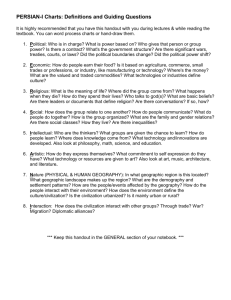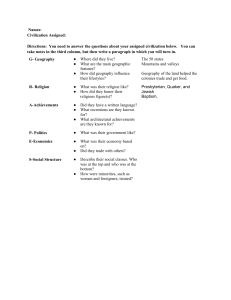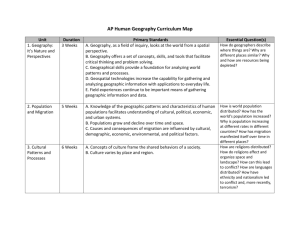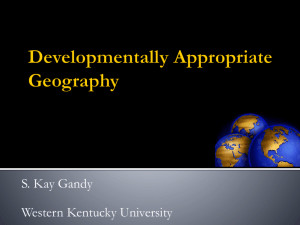PERSIAN-I Chart: Definitions & Guiding Questions
advertisement
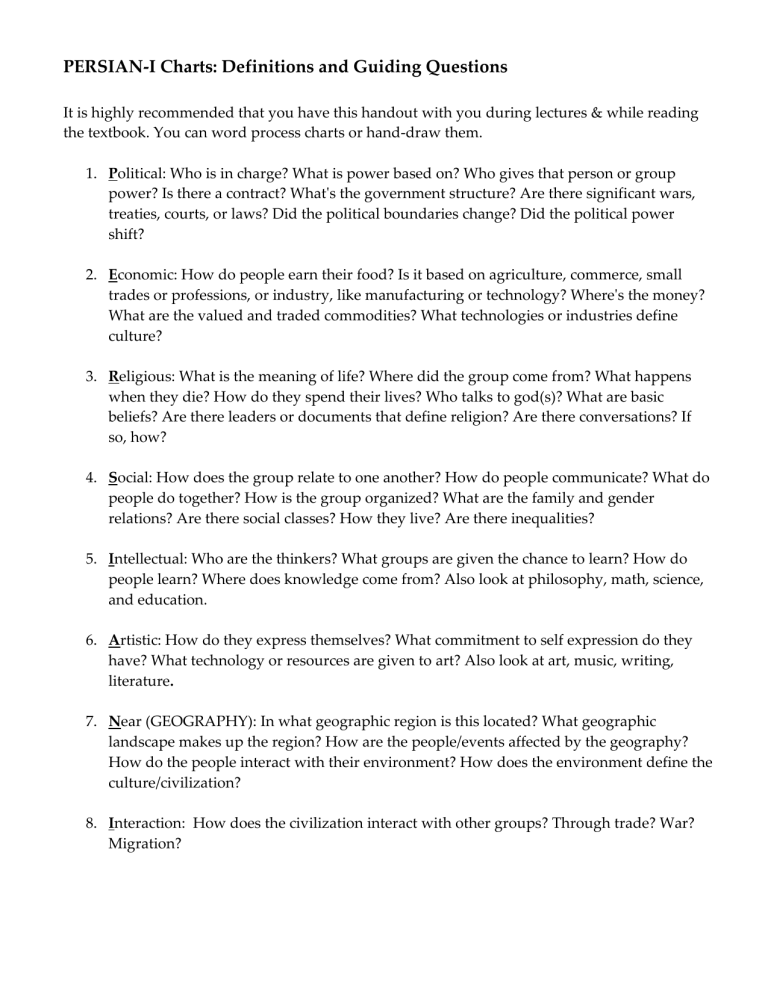
PERSIAN-I Charts: Definitions and Guiding Questions It is highly recommended that you have this handout with you during lectures & while reading the textbook. You can word process charts or hand-draw them. 1. Political: Who is in charge? What is power based on? Who gives that person or group power? Is there a contract? What's the government structure? Are there significant wars, treaties, courts, or laws? Did the political boundaries change? Did the political power shift? 2. Economic: How do people earn their food? Is it based on agriculture, commerce, small trades or professions, or industry, like manufacturing or technology? Where's the money? What are the valued and traded commodities? What technologies or industries define culture? 3. Religious: What is the meaning of life? Where did the group come from? What happens when they die? How do they spend their lives? Who talks to god(s)? What are basic beliefs? Are there leaders or documents that define religion? Are there conversations? If so, how? 4. Social: How does the group relate to one another? How do people communicate? What do people do together? How is the group organized? What are the family and gender relations? Are there social classes? How they live? Are there inequalities? 5. Intellectual: Who are the thinkers? What groups are given the chance to learn? How do people learn? Where does knowledge come from? Also look at philosophy, math, science, and education. 6. Artistic: How do they express themselves? What commitment to self expression do they have? What technology or resources are given to art? Also look at art, music, writing, literature. 7. Near (GEOGRAPHY): In what geographic region is this located? What geographic landscape makes up the region? How are the people/events affected by the geography? How do the people interact with their environment? How does the environment define the culture/civilization? 8. Interaction: How does the civilization interact with other groups? Through trade? War? Migration? PERSIAN-I Chart Culture/Civilization and Time Period: _______________________________ POLITICAL Leaders, Elites State Structure War Diplomacy, Treaties Courts, Laws ECONOMIC Type of System Technology, Industry Trade, Commerce Capital/Money Types of Businesses RELIGIOUS Holy Books Beliefs, Teachings Conversion Sin/Salvation Deities SOCIAL Family Gender Relations Social Classes Inequalities Life Styles INTELLECTUAL Philosophy Math & Science Education ARTS Art, Music Writing, Literature Architecture NEAR: GEOGRAPHY Physical Movement/Migration Human/Environment Region INTERACTION …with other groups Trade
